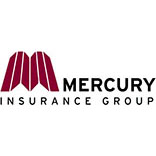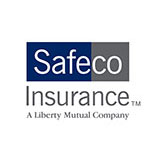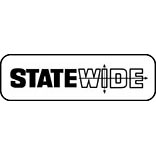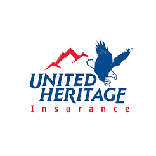Small business insurance to the largest of corporations
The success of a business, whether it's a tiny enterprise run out of a basement or a large corporation, is largely dependent on hard work and ingenuity. However, no matter how industrious the business owner, one simple mishap such as a hurricane or lawsuit can wipe out all the profits and even destroy the business. The key to making sure that all the effort and money invested in a business doesn't disappear when a disaster strikes is to protect a business with the appropriate insurance.
Find the right agent
- Ask friends and acquaintances who are in the same kind of business about their agent.
- Ask the agent or company that provides your personal insurance for advice.
- Search business trade associations to see if they sponsor an insurance program specific to your business.
- Make sure the insurance agent is knowledgeable about your business's particular insurance needs and methods to reduce exposure to loss.
File a claim
- When a fire, accident or theft occurs, your insurance agent and company should be contacted at once. Any burglaries or theft should be reported to the police immediately.
- After a disaster, take steps to protect the property from further damage with temporary repairs.
- If immediate repairs to equipment are necessary, save the damaged parts in case the claims adjuster is interested in examining them.
- Get at least two bids on the cost to repair or replace damaged property.
- When filing a business interruption claim, you should be able to show the income from the business both before and after the loss.
- Keep detailed records of business activity and extra expenses during the interruption period. This should include expenses that continue during the time that the business is closed such as advertising, telephone, etc.
Save money
- Keep in close touch with your agent to:
- Understand how your premium is being determined.
- Inform your agent of the steps you are taking to prevent loss.
- Make arrangements to use the facilities of another firm in the same line of work in case there is an interruption period.
- Store a backup of your electronic records off the premises.
- Take a higher deductible on your policy. It will result in a reduced premium.
- Buy a package policy rather than separate policies. Package policies often provide broader coverage at a lower price.
- Consider installing ignition cutoff systems, alarms or hood and wheel-locking devices in company cars. Some insurance companies offer discounts for these items.
- Discuss insurance with people in the same business. You may pick up trends in price and other developments which can save money.
- Involve employees in all programs to prevent loss and maintain safety.
Insure against a catastrophe
Businesses that recover quickly are those that plan in advance. This involves not only purchasing the right insurance, but also developing and maintaining an adequate recovery plan.
- Minimize the risk of damage in advance of an emergency
- Train employees in fire safety particularly those responsible for storage areas, housekeeping, maintenance and operations where open flames or flammable substances are used.
- Modernize the electrical system since faulty wiring causes a large percentage of nonresidential fires.
- Situate your business in a fire-resistive building - a structure made of non-combustible materials with firewalls that create barriers to the spread of fires - and in a building with a fire alarm system connected to the local fire department.
- Limit storm-related damage by making sure the building conforms to damage-resistant building codes.
- Develop a disaster recover plan
- Keep duplicate records of both computerized and written records. Under federal law, if companies fail to maintain accurate business records and to safeguard those records, the company may be held liable.
- In order to maintain market share while the business is closed for repairs, identify the critical business activities and the resources needed to support them.
- Plan for the worst possible scenario. Do research before a disaster strikes by finding alternative facilities, equipment and supplies and locating qualified contractors.
- Set up an emergency response plan and train employees how to carry it out. Consider the things you may need to initialize during an emergency such as back-up sources of power and communications systems. Also, consider the supplies that may be needed such as first-aid kits and flashlights.
- Compile a list of important phone numbers and addresses including local and state emergency management agencies, major clients, contractors, suppliers, realtors, financial institutions, insurance agents and claims representatives. The list should also include employees and company officials. Keep copies off the premises in case the disaster is widespread.
- Decide on a communications strategy to prevent loss of clients/customers. It is imperative for clients and customers to know how to contact your company at its new location. Among the possibilities to explore, depending on the circumstances, are posting notices outside the original premises, contacting clients by phone or mail, placing a notice in local newspapers and asking friends and acquaintances in the local business community to help disseminate the information.
- Review your Insurance Program
- For Property
- Typically, property insurance policies exclude coverage for flood damage. If your business is located in a flood zone, you will probably need to buy a flood insurance policy through the National Flood Insurance Program.
- The federal government requires buildings in flood zones that don't conform to flood plain building codes be torn down if damage exceeds 50 percent of the market value. Consider purchasing ordinance or law coverage to help pay for the extra costs of tearing down the structure and rebuilding it, whether damaged by flood or something else.
- If your policy contains a coinsurance clause, make sure your property is sufficiently insured in compliance with the clause. Ask your agent for help!
- For Business Interruption
- Business interruption insurance compensates for income lost if your company has to vacate the premises or is unable to operate at the same location due to a covered loss.
- Business interruption insurance covers the profits you would have earned, based on your financial records, had the loss not occurred.
- The policy covers operating expenses that continue, like electricity, or a mortgage payment even though business activities have come to a temporary halt.
- Make sure the policy limits are sufficient to cover your company for the amount of time you are shut down.
- The price of the policy is related to the risk of a fire or other disaster damaging your premises.
- For Extra Expenses
- Extra expense insurance reimburses your company for a reasonable sum of money that it spends, over and above normal operating expenses, to avoid having to shut down during the restoration period.
- Usually extra expense insurance will only be paid if the extra expenses help to decrease business interruption costs.
- In some instances, extra expense insurance alone may provide sufficient coverage, without the purchase of business interruption insurance.
- For Property
On a regular basis, review all the components of the disaster recovery plan
- Fire safety and emergency preparedness measures.
- Business continuation and building repair plans.
- Insurance program.
Communicate changes to key employees.
Contact your insurance agent or the insurance company's loss control services if you need help in identifying hazards and assessing risk or for more information on developing a disaster recovery plan.













